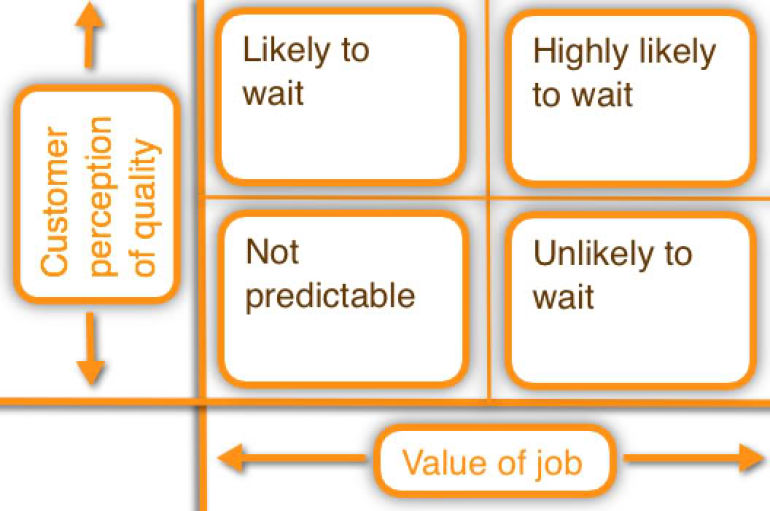Have too much work on? Keep your customer and your sanity
This series talks about what our service businesses can do when you've got too much work on. How can you have your cake and eat it too? Basically, your options include negotiating with a customer to book the job at a time that suits your business.
What do you have to negotiate with?
Your competitive cost and quality business reputation. Customer's buying decisions aren't always about timelines - in the same way that their buying decisions aren't all about cost. If you can't meet their expectations on one area, overcompensate in another.
Specifically, when your business is too busy to take on new work in the timeline that the customer wants, compensate with offering better quality. Generally in this situation, compensating by dropping your pricing doesn't make sense, but sometimes even a token drop in cost goes a long way to closing the deal on (mostly) your terms.
Here's an example of this suggestion in practice
I had requested quotes from three different windows companies to install a new set of windows and doors once (before Service Central's time). One company said no outright - too busy. He didn't even bother to follow any of my suggestions in my 'saying no to work' blog so of course I thought "Your loss", and continued with the other two. One of the companies could give me a specific timeline, and one couldn't until I'd accepted the quote so I got a very vague time estimate. I found that a little disconcerting at the time, ad leant toward the company that could do the job sooner. But, installing new windows is actually a job where quality is more important than timing and so I picked the company who couldn't give me a timeline - because they sold me on the quality of previous jobs they'd done.
This story illustrates a point that you can win work without confirming a timeline up front, but it may only work in high value low volume trades. I'd say it's likely that the customer's capacity to wait for your business is directly proportional to the value of the job, so in short quick jobs like fixing a drain their capacity to wait is low - but if you give them a perception of quality (or a small cost compensation) you change this unpredictability to a probability.
I've developed this model to explain my point - called the 'Capacity to wait' model.
I recognise that some jobs aren't worth saving. The effort to save the job by showing quality can cost your company more than simply turning the work away, so if you're in this position have a read of my advice on how to turn work away and not damage your business. And of course, if you're experiencing this need to turn work away on a regular basis, you should think about increasing your capacity to deliver.


